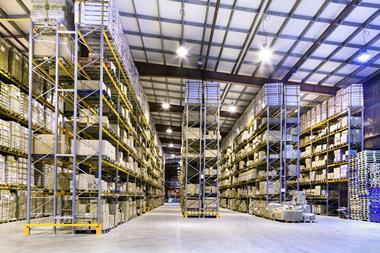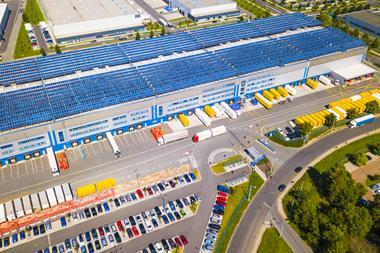From punitive business rates and a flawed planning system to a failure to consider the sector’s labour needs, government policy isn’t working for warehousing.

But with the prospect of a general election later this year, Baroness Scott, the minister whose portfolio includes warehousing, has said that political parties of all persuasions will be listening to the business community. So, now is the time to speak out.
Accordingly, the UK Warehousing Association (UKWA) 2024 manifesto calls for overdue reform to business rates and urgent improvements to the planning system, as well as highlighting the massive untapped potential of solar power on warehouse rooftops.
There is significant demand for warehousing, yet there is an acute shortage of high-quality buildings and development land. The government remains overly focused on housing supply, to the detriment of the supporting infrastructure that can bring economic and societal benefits, such as local employment.
A future government needs to recategorise warehouses as part of national infrastructure, so that local authorities averse to granting permission for the construction of large buildings such as warehouses can no longer exclude them from local plans.
Green-belt release will be essential to support key logistics areas such as the West Midlands. The original intention was to prevent urban sprawl, but now more than 12% of land is designated ‘green belt’, including some decidedly low-quality terrain. There are significant swathes of so-called green belt located around the country’s best-connected motorways, and allowing warehouse developments to be built in these areas will enable the industry to optimise freight transport without compromising lush green fields. From a sustainability perspective, it makes sense for our planning system to guide warehouses to these locations, as connection to motorways means they can effectively reduce their carbon footprint.

Warehousing is also crucial to achieving the UK’s net zero commitments through the adoption of rooftop solar power. Despite our contribution to the government’s Solar Taskforce, there is a real risk that warehousing is being overlooked in the net zero energy transformation.
Our message is clear: the government needs to deliver policies that make installations as commercially viable as possible.
Furthermore, we need wholesale reform of distribution network operators (DNOs), and their regulation by Ofgem. Under the current arrangements, DNOs are obstructive, monopolistic and run for profit, posing challenges for many warehouse operators seeking to improve or develop their energy infrastructure. We are asking that the government creates an environment where obtaining permission for solar projects is streamlined, fair and affordable.
As the voice of warehousing, the UKWA has a vision for a government that promotes and encourages warehousing. We are calling for a strengthened national planning policy framework – including energy planning – that recognises and fully understands our sector’s role in the national economy. To that end, UKWA’s 2024 manifesto will be launched at our national conference in March.
Clare Bottle is chief executive of UKWA





























No comments yet